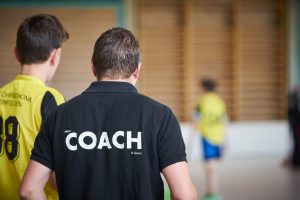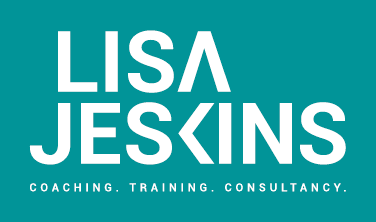I’d been talking to my friend Gil Young about coaching and she wanted to know more about my experiences. Gil was thinking about starting a coaching qualification herself and thought a bit more information would be useful. She sent me some questions that she wanted answering and this written interview* has the answers I came up with.
I’m hoping that this might be useful for anyone in similar situation to Gil, or for anyone wondering if having some coaching might be beneficial.
*is that even a thing? Am I making things up again?

What is coaching?
John Whitmore (2009) describes it as, “unlocking people’s potential to maximize their own performance.”
When you coach someone, you are often helping them to get out of their own way. As coaches, we talk about enabling people to let go of the interference which is holding them back from their own high performance or version of success. This interference is often their fears or doubts or any other negative self-talk that might be preventing them from achieving all that they can.
What is the difference between coaching and mentoring?
When you mentor someone, you are often mentoring someone in the same role or sector as yourself. When you mentor you provide advice or the benefit of your experience working as a librarian, or in higher education etc. You might make suggestions or provide possible answers.
With coaching, you can coach anyone, they can be in a completely different industry to you. You are providing an environment, through questioning or facilitating thinking, where your coachee can come up with the solutions themselves.
What made you decide to enrol on the Institute of Leadership & Management (ILM) Level 7 Executive coaching and mentoring course?
I was asked to tender for a really interesting piece of work called ‘Transition to Employment’. The contract involved training and support provision for those coming into the archives sector in an untraditional manner, using a number of tools including coaching. At this point a lot of my training courses were around professional development and it seemed like a really good fit for my skillset, but they wanted someone who was a qualified coach. I contacted a colleague, Claire Bradshaw to ask her if she was interested in collaborating on the tender with me. I knew we’d work together really well plus she is a coach and Master NLP Practitioner. We produced a tender that we’re really proud of but unfortunately we were pipped at the post by a larger company that the client felt had more resources at their disposal. I’d been really excited by the prospect of this work and it made me realise how much I enjoyed helping people to develop and how much of my work was around this ethos of helping people improve their performance. I realised I was excited by the prospect of becoming a coach myself and started to explore how this would fit into my objectives for the business. One of the things I wanted to achieve was to create a more varied portfolio of services that I could provide for my clients. I was also looking for work that might fit well around my current training offers. I realised that coaching would provide this for me, as once qualified, preparation time for coaching is a lot shorter than it is for designing a course, and the time where you are actually coaching someone is usually between 1- 2 hours, instead of 3 or 6 hours workshops. I reflected on the work I was doing at the time, and felt that as I was doing such a lot of professional development training, that learning to coach would also help me to improve my facilitation skills and might allow me to prepare offers that included packages of training and coaching. I started my ILM7 in May 2016 and qualified in May 2017.
What did the course cover?
The course was run by Lois Burton Ltd through The University of Manchester. It was the combination of theory and practice that really appealed to me. I knew that we’d get a lot of chances to practice. Within the course there were 5 workshop days, where we learnt about coaching theory and practice, 4 coaching development groups where we coached each other and gave each other feedback and 2 coaching masterclasses. We had to perform a minimum of 20 hours of coaching and write a reflective portfolio. The course covered coaching fundamentals such as inner game and responsibility, the GROW model, Leadership, contracting, ethical issues around coaching, coaching supervision, giving and receiving feedback and team coaching. You get the opportunity to coach a lot but also to be coached and this is a really strong teaching tool particularly as one of the core ideas of coaching is around self-awareness. You, as coach, need to become more self-aware but you are also helping to increase the self-awareness of the person you are coaching.
- GROW = Goals, Reality, Options, Wrap up/Will.
- The GROW Model explained further by Mindtools: https://www.mindtools.com/pages/article/newLDR_89.htm
What was the most significant thing you learnt from doing the course?
To shut up. Something I can struggle with. I like to talk, I do. I’ve learnt to pay attention to people. I’ve learnt that I don’t need to try and fill the silence. This was incredibly difficult for me. In fact, it’s quite difficult for other trainers too as they are used to being the ‘sage on the stage’ who has all the answers. Learning to be a coach means you know it’s not about providing people with answers, but about asking pertinent questions so that the person you’re coaching can come up with their own solutions. But knowing this and actually shutting the hell up, is really quite hard.
It’s quite scary for an extrovert like myself to be quiet, listen and really pay attention to the person in front of you, to what they are saying, the words they are using, to what they might not be saying, and their body language, all of which can really help you to ask questions of the person you’re coaching.
What are the main benefits to an individual of coaching?
Having coaching at various times in my life has been really beneficial to my career and allowed me to work out what my next steps were. In fact, coaching helped me to see that my career was in training and it helped me when I was trying to decide whether to become self-employed full time. It gave me a safe space where I had time to think and not be judged. When we’re busy with the day to day we can get bogged down in the minutiae and it can be hard to plan or see a way forward. Coaching gives you a process and structure to thinking and an external person to facilitate your thinking. Often when I’ve had coaching, a solution was pretty simple, but I wasn’t able to see it on my own. It was only through someone else asking me questions that I was able to work out what to do. It is this feeling of support, lack of judgement and safe space that I really want to bring to my coaching.
What advice would you give to someone thinking about enrolling on the course/becoming a coach?
I have 2 pieces of advice:
Find out something about different psychological theories or techniques before you start. I think doing some reading beforehand on Gestalt, Cognitive Behavioural Therapy, Transaction Analysis or NLP would have been really helpful. (Choose 1 or 2, you don’t necessarily need all of these, although they would be useful.)
Trust your instincts and consider how you react to people. It’s often your brain giving you more information. I am very academic and can sometimes ignore what my emotions are telling me, but in coaching we need to use all of our senses and it is often more about what we are feeling than what Whitmore ‘told us we need to look for’.
Coaching feedback.
(Reproduced with permission from the coachee)
The coaching experience was really beneficial. The process was really clear from the start and I understood what to expect from Lisa as a coach. The coaching relationship has helped me in a number of ways. One of the areas which I wanted to develop was my general confidence in professional situations, specifically around presentations. Lisa helped me to identify why I lack confidence and helped me to realise what may be causing nerves during these situations. I realised that my nerves really stem from how I view my audience and my confidence in my own abilities as a presenter. Lisa helped me to identify traits in other professionals whom I admire and asked me to consider how I might learn from them. Since completing our coaching, I have signed up to speak at a conference for library and information professionals. The topic will be on careers for our profession and I think this is a great way to gain more experience. I would not have signed up prior to my coaching experience with Lisa but it is something I always wanted to do.
Library and Knowledge Service Manager for an NHS Trust
Reference
Whitmore, J. (2009) Coaching for Performance: The Principles and Practices of Coaching and Leadership. 4th ed. London: Brealey Publishing.
Useful links:
- Claire Bradshaw’s website: https://clairembradshaw.co.uk/
- Jo Walley’s coaching page on her website: https://jowalley.co.uk/coaching/. I really like the way Jo describes what she does and brings to coaching
- Russ Thorne writes an interesting post on Six things that coaching isn’t: http://www.karianandbox.com/blog/sixthingsthatcoachingisnt/
